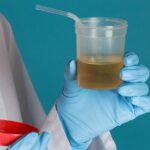GPs and EDs need serious help, not pharmacists trying to do someone else’s job.
I suffer from dry eyes.
Semi-regularly, particularly after a windy day in the garden, I can develop an ulcer which needs treatment recommended by an ophthalmologist – an antibiotic ointment twice a day and moisturising gel in between. Works a treat, every time.
Yesterday I walked into a community pharmacist to pick up fresh supplies of the above unguents which are over-the-counter products.
The pharmacist served me herself and it soon became apparent why. She had issues.
“What’s going on with your eye?” she asked. I told her I had an ulcer.
“Are you seeing an actual optometrist?” she asked, as if I was just plucking a product off Dr Google at random.
“I’m seeing an actual ophthalmologist,” I replied.
“Well, I wouldn’t be treating an ulcer with this,” she said.
“Ah well,” I replied, hoping I wouldn’t have to spell out my indifference to her opinion.
“No,” she said. “Steroids would be a better option.”
I can’t tell you how much I wanted to be rather rude. I can’t tell you how much I wanted to point out that she hadn’t the vaguest clue about my medical history in general, let alone my history with steroids; how much I wanted to point out the gulf between her training and experience and those of my ophthalmologist; how much more I know about my own medical conditions and how to treat them than she does, or ever will.
But no. I was wearing a “Yes to the Voice” t-shirt so I was already walking that fine line between survival and potential violence which is more common than you might think in Queensland’s regional towns at the moment. I decided to save my fighting words for more important causes.
I handed over my money, took my ointments and said, “ah well” once more before walking out the door.
Seriously. That was an actual conversation with an actual pharmacist.
Since taking over as editor of TMR sister publication Health Services Daily back in July, certain words and phrases have developed into extreme irritants for me.
One is “interoperability”. Obviously. Whichever genius came up with that eight-syllable monstrosity to represent the pure simplicity of the concept of data sharing across the healthcare sector clearly doesn’t want it to ever happen – instant disengagement just from hearing it.
Another is “top of scope”.
My above-mentioned sojourn to the chemist yesterday is a perfect example of a pharmacist trying to work at “top of scope”.
Don’t get me wrong. I have utterly no objection to someone wanting to work in a job that requires them to use all their training and experience in order to do it well. Go for it. Knock yourself out.
What I object to is someone believing their “top of scope” is the equivalent of someone else’s “top of scope” when clearly there is a yawning gulf between education, training and experience, and then wanting to do that someone else’s job as a result.
In NSW, a pharmacist taking part in the pharmacy prescribing trial for uncomplicated UTIs has to undergo – wait for it – 2-7 hours of training. Compare that to the years and thousands of dollars invested by a GP into their education and training.
After a 10-minute consultation taking a history, the pharmacist uses the “PATH-UTI” protocol to decide if the patient should be treated with antibiotics, over-the-counter measures, or referred to either their GP or the emergency department.
Of course, there’s no pathology test done to confirm the presence of an actual UTI – after all, where’s the customer going to pee in the bottle? In the storeroom with the spare CPAP hoses?
The pharmacist’s “diagnosis” relies purely on the patient’s self-report.
In Queensland meanwhile, a year after making pharmacist-led UTI prescribing permanent, there has been a dramatic increase in women presenting to emergency departments with the condition.
Hmm. Join the dots.
At least in Queensland participating pharmacists now have to complete the 13-week (10 contact hours per week) Safe Prescribing and Quality Use of Medicines program delivered by Queensland University of Technology, including 120 hours of learning in practice supervised by a “designated prescriber”.
But then they’re going to be prescribing way more than “simple” UTIs – gastro-oesophageal reflux and gastro-oesophageal reflux disease, acute nausea and vomiting, allergic and nonallergic rhinitis, impetigo, herpes zoster (shingles), mild to moderate atopic dermatitis, acute exacerbations of mild plaque psoriasis, mild to moderate acne, acute wound management, acute diffuse otitis externa, acute otitis media, acute mild musculoskeletal pain and inflammation, smoking cessation, hormonal contraception, oral health screening and fluoride application, travel health, and management of overweight and obesity.
All of this, of course, is about more than helping pharmacists work “top of scope”. It’s about – if you believe the state health departments – taking pressure off GPs and emergency departments.
It’s not, of course. It’s really about finding the quickest, seemingly simplest, and above all, cheapest solution to “helping” overworked GPs and EDs.
It’s also about keeping the Pharmacy Guild happy and willing to continue pouring its money into political party coffers following the double dispensing “slap in the face”.
But perhaps I’m being cynical.
GPs and EDs – especially in the rural and remote regions – need serious help. Real reform driven by deep thought, deep pockets and a willingness to provide support beyond the length of an election cycle. Not pharmacists trying to do someone else’s job.





